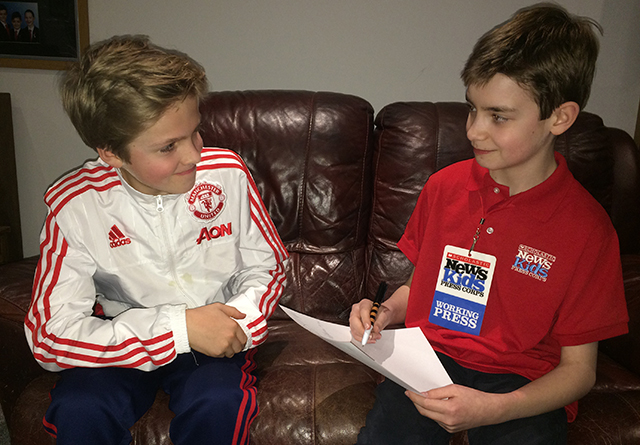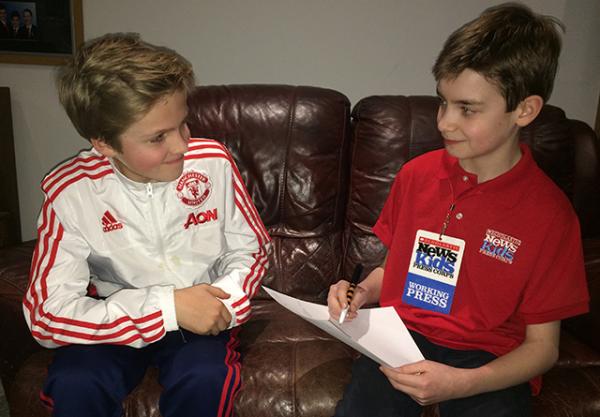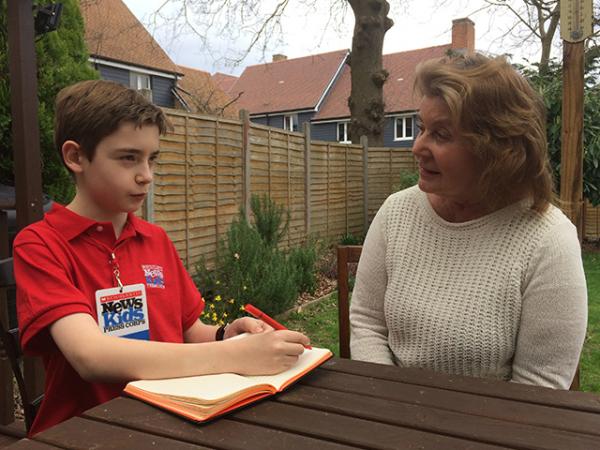KID REPORTERS’ NOTEBOOK
What Is the Deal With Brexit?


Martin interviews James Livermore, who lives in Emsworth, England.
By now, people all over the world have heard about Brexit. But what does it mean?
Brexit is a combination of two words, “Britain” and “exit.” It stands for the decision by voters in the United Kingdom (UK) to withdraw from the European Union (EU).
The EU is a group of 28 European countries that share laws allowing for the free flow of people and goods between countries.
On June 23, 2016, nearly 52 percent of people in the UK voted to leave the EU. The British Prime Minister at the time, David Cameron, had called for a referendum (vote), asking the British people to make the decision.
However, the results shocked Cameron. Ahead of the referendum, he had toured the UK extensively, saying that a vote for of Brexit would be an act of “economic self-harm.”
The day after the referendum, Cameron resigned. “The British people have voted to leave the European Union,” Cameron said, “and their will must be respected.”
There are now two options:
- Soft Brexit: The UK would still be part of the free flow of goods and people but would have no vote in the European Parliament.
- Hard Brexit: The UK would not abide by EU laws and could restrict who is allowed entry into the country.
“A FAIRER SOCIETY”
Theresa May, who became Prime Minister after Cameron stepped down, is aiming for a Hard Brexit. May is a member of the Conservative Party. She says that she wants to “use this moment of change to build a stronger economy and a fairer society by embracing genuine economic and social reform.”
Many people in the UK have felt that their concerns about the economy, stagnant wages, and a high immigration rate have gone unheard. May wants to make sure that Brexit is enacted successfully.
I asked James Livermore, 12, from Emsworth, England, how Brexit will affect him. “There are small differences, like the prices of school cookies going up,” he said.
And bigger differences? “For example, sportspeople becoming unable to move freely between British and European teams,” James said.
WHY DID THIS HAPPEN?
I asked Elaine Shimbart, Mayor of Havant, England, what she thought was the greatest factor influencing the decision to withdraw from the EU.

Martin talks with Elaine Shimbart, Mayor of Havant, England.
“There were a couple of factors,” she said. “Many older people were fed up with laws being made by unelected civil servants. Also, the exaggerated guesses coming from Westminster [the center of UK politics] and the interference of foreign politicians.”
Brexit will affect people in the UK in several ways. For example, British people going on vacation will now have to wait in long lines for security checks before they can enter other countries in Europe. Fewer goods will be traded between the UK and other countries until deals are agreed upon. But, as Mayor Shimbart said, we won’t really know until it has happened.
